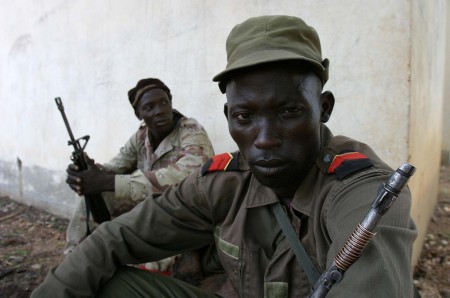
This article was originally published by the Institute for Security Studies on 23 March 2016.
On Monday 21 March, the International Criminal Court (ICC) found former Congolese vice-president and former rebel leader Jean-Pierre Bemba guilty of war crimes and crimes against humanity. Although the charges emanate from crimes committed in Central African Republic (CAR) in 2002 and 2003, his guilty verdict affects not one, but two African countries.
First, in CAR where the ICC found that troops belonging to Bemba’s rebel group Mouvement pour la Liberation du Congo (MLC – the Movement for the Liberation of the Congo) committed the international crimes of rape, murder and pillaging at his behest. Second, the neighbouring Democratic Republic of Congo (DRC) where Bemba’s arrest and elimination from the political scene in 2008 significantly changed the political landscape.
In late 2002, Bemba – then MLC leader – sent his troops to assist CAR’s president at the time Ange-Félix Patassé. Patassé was attempting to quell armed attacks from François Bozizé, the man who would eventually overthrow him. At this point Bemba had been relying heavily on Patassé; using Bangui as his rear logistics base during his rebellion against DRC President Joseph Kabila. Responding to Patassé’s call for help was in many ways a survival strategy for Bemba. Despite these efforts, Bozizé ousted Patassé in March 2003.
